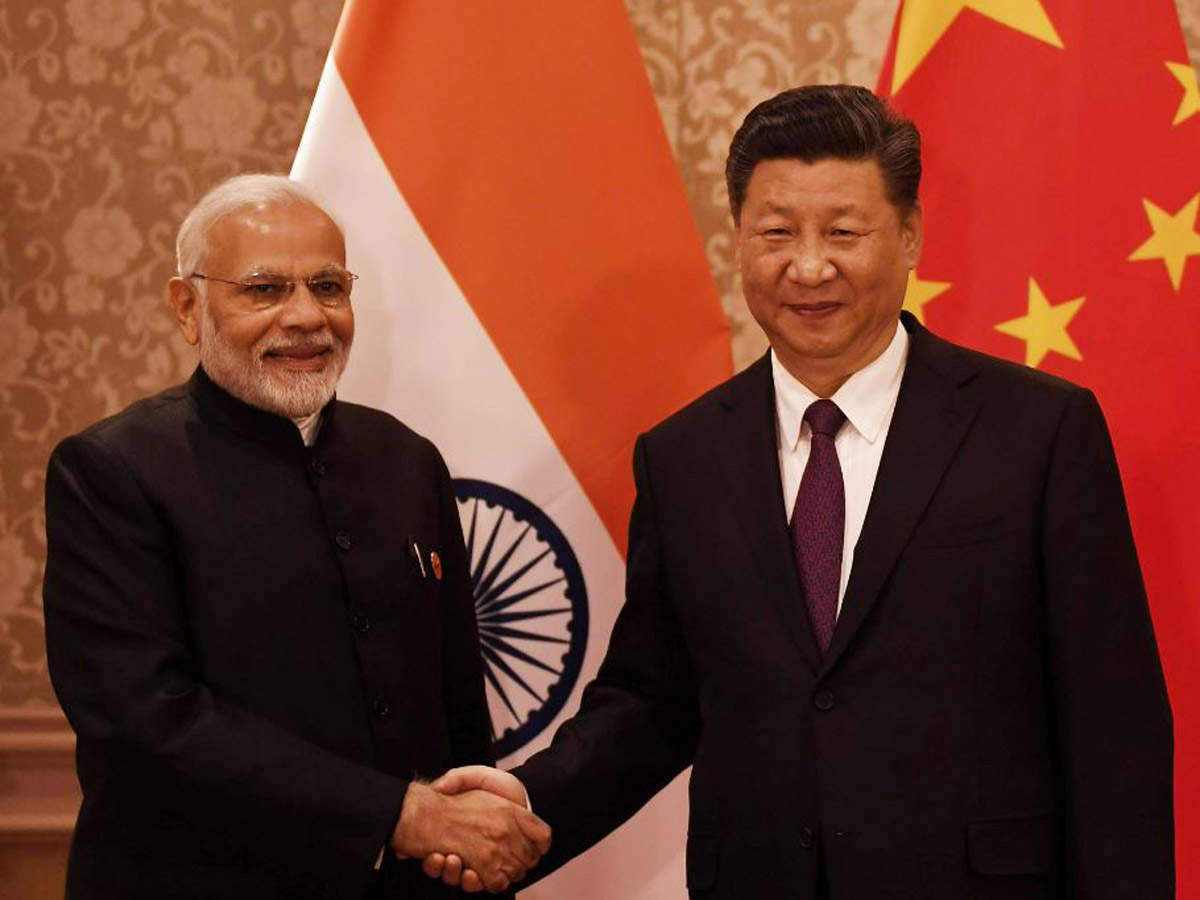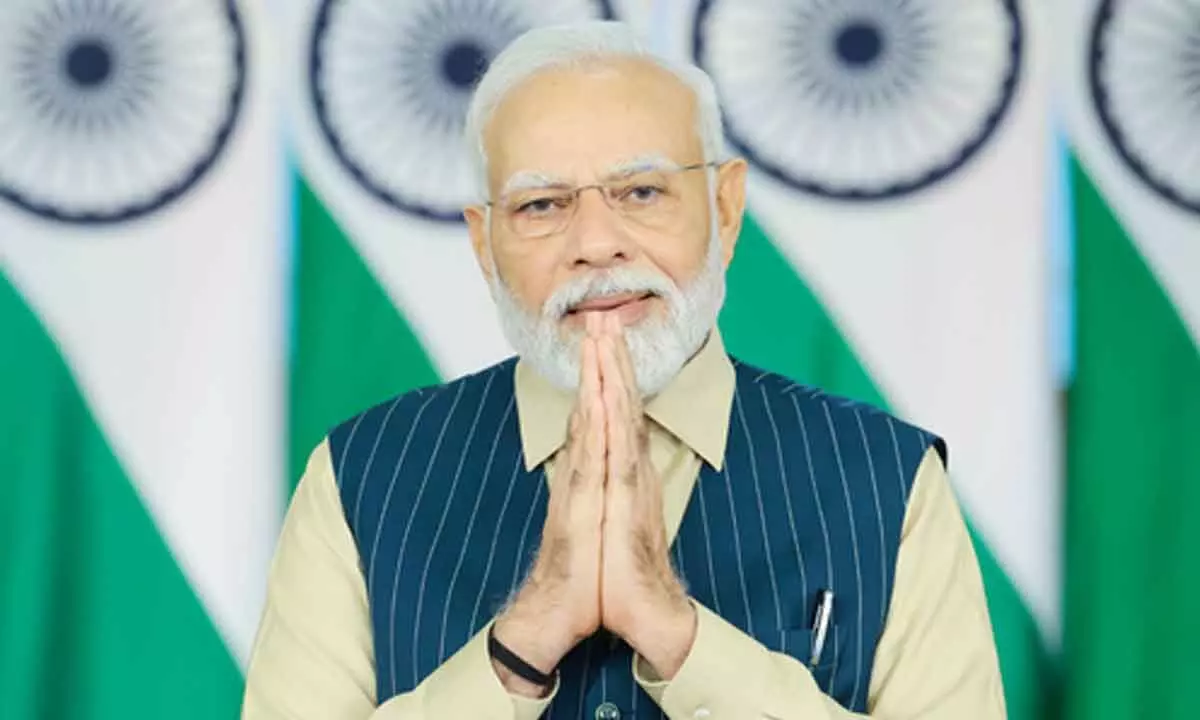BRICS Summit: Will PM Modi meet China’s Xi Jinping in South Africa. What we know

BRICS Summit: Will PM Modi meet China’s Xi Jinping in South Africa. What we know
The 15th summit of the BRICS group, which comprises prominent emerging economies such as Brazil, Russia, India, China, and South Africa, is scheduled to take place in Johannesburg from August 22 to August 24. This high-level gathering of heads of state and government from these diverse nations holds significant importance on the global stage.
BRICS, an acronym representing the five member countries, is renowned for its efforts in promoting collaboration, dialogue, and strategic partnerships among emerging economies. This summit serves as the 15th instance of their collective discussions and policy deliberations. By convening in Johannesburg, the leaders of Brazil, Russia, India, China, and South Africa are set to engage in discussions that are expected to shape the trajectory of their respective economies and international relations.
The summit provides a platform for the member countries to exchange ideas, foster economic cooperation, and address shared challenges. These nations represent a substantial portion of the world’s population and have a considerable impact on global economic dynamics. Therefore, the outcomes of this summit hold potential ramifications for the wider international community.

Johannesburg, as the chosen host city, offers a symbolic backdrop for the event. As a major urban hub in South Africa, it stands as a testament to the evolving landscape of emerging economies and their growing influence in global affairs. The discussions held during the summit are likely to cover a range of topics including trade, investment, technology, sustainable development, and geopolitical cooperation.

In an increasingly interconnected world, the collaboration between these diverse economies is of paramount importance. The BRICS summit presents an opportunity for leaders to fortify existing partnerships, explore new avenues of cooperation, and address mutual concerns. Moreover, the summit’s timing against the backdrop of global challenges, including economic recovery post-pandemic and shifts in geopolitical dynamics, underscores its relevance in shaping the future trajectory of international relations.
Foreign Secretary Vinay Kwatra has addressed the potential for a bilateral meeting between Chinese President Xi Jinping and Indian Prime Minister Narendra Modi during the 15th BRICS Summit in South Africa. Kwatra has communicated that the Prime Minister’s itinerary is currently under development, indicating that the schedule for the Prime Minister’s engagements is still being finalized.
The statement suggests that the possibility of a bilateral meeting between the leaders of China and India remains open, yet contingent on the Prime Minister’s evolving schedule. Such a meeting, if it were to occur, could hold significance for the bilateral relationship between the two nations, addressing matters of mutual interest, regional cooperation, and global affairs.
The 15th BRICS Summit, featuring the participation of leaders from Brazil, Russia, India, China, and South Africa, serves as an opportune platform for diplomatic interactions among these influential emerging economies. The anticipation surrounding the potential meeting between President Xi Jinping and Prime Minister Modi reflects the attention and importance given to diplomatic engagements in the context of the summit.
As the schedule of Prime Minister Narendra Modi takes shape, further clarity will likely emerge regarding his participation in bilateral discussions and meetings, including the prospect of a dialogue with President Xi Jinping. Such interactions hold the potential to contribute to regional stability, economic cooperation, and broader international collaboration, reinforcing the significance of diplomacy within the framework of the BRICS Summit.
In anticipation of Prime Minister Narendra Modi’s upcoming visits to South Africa and Greece, Foreign Secretary Vinay Kwatra conducted a special press briefing. During the briefing, Kwatra emphasized that South Africa, the host country of the 15th BRICS Summit, has extended invitations to a diverse array of guest countries, in addition to the BRICS member nations who are set to participate in the summit.
Kwatra’s remarks underscore the inclusive nature of the summit, reflecting the broad engagement and collaboration sought by the host nation. South Africa’s invitation to a substantial number of guest countries beyond the core BRICS members exemplifies its commitment to fostering global dialogue, cooperation, and shared understanding. This gesture suggests that the summit serves as a platform not only for the BRICS nations but also for a broader spectrum of international stakeholders.
The involvement of guest countries aligns with the summit’s potential to address a wide range of global issues, including economic development, geopolitical dynamics, sustainable growth, and other matters of shared concern. The participation of various nations enhances the summit’s capacity to produce meaningful outcomes and promote international cooperation.
Prime Minister Modi’s attendance at the summit is of particular significance in this context. His presence will not only contribute to the discussions within the BRICS framework but also enable engagement with the diverse group of guest countries in attendance. His interactions with fellow leaders can foster diplomatic ties, stimulate collaboration, and drive conversations that span beyond the immediate concerns of the BRICS bloc.
As Prime Minister Modi embarks on his visits to South Africa and Greece, the anticipation surrounding these engagements highlights the diplomatic efforts of India to engage on multiple fronts, reinforcing the nation’s commitment to global partnerships and dialogue. The exchange of ideas and perspectives during these visits has the potential to shape the course of international relations, economic cooperation, and shared endeavors on a broader scale.

In essence, Foreign Secretary Kwatra’s briefing underscores the significance of the upcoming visits and the diverse participation expected at the 15th BRICS Summit in South Africa. The involvement of guest countries alongside the BRICS members enriches the summit’s discourse and further emphasizes the importance of collaboration in addressing global challenges.
In light of Prime Minister Narendra Modi’s imminent departure for the 15th BRICS Summit in Johannesburg, South Africa, Foreign Secretary Vinay Kwatra has provided insights into the Prime Minister’s schedule and engagements. Kwatra has conveyed that the Prime Minister’s schedule, specifically regarding bilateral meetings with leaders attending the summit, is still in the process of being developed.
Prime Minister Modi’s participation in bilateral meetings with fellow leaders present at the BRICS Summit holds significance for fostering diplomatic ties, exchanging viewpoints, and advancing collaborative efforts. The evolution of the Prime Minister’s schedule underscores the dynamic nature of diplomatic engagements at such high-profile gatherings.
As the Prime Minister prepares to embark on his journey, the focus remains on his participation in the BRICS Summit, which is set to commence tomorrow. The leaders of Brazil, China, and South Africa, alongside Prime Minister Modi, will converge in Johannesburg to partake in this significant international event. The summit, spanning from the starting date to its conclusion on August 24th, serves as a platform for discussions, deliberations, and cooperative efforts among these influential emerging economies.
The Prime Minister’s involvement in the summit underscores India’s commitment to collaboration within the BRICS framework. Participating in the deliberations, Prime Minister Modi can contribute to shaping the collective agenda of the group, addressing pressing global issues, and forging strategic partnerships.
In November of the previous year, an important encounter occurred when Prime Minister Narendra Modi and Chinese President Xi Jinping met at the G20 dinner, which was hosted by Indonesian President Joko Widodo in Bali, Indonesia. This informal interaction marked a notable point of contact between the leaders of India and China.
Over the past three years, India and China have been ensnared in a standoff situation, characterized by tensions along their shared borders. This prolonged state of unease has resulted in a deterioration of relations across various levels. The focal point of these tensions has been the border regions, particularly in Eastern Ladakh. Efforts to address these issues have been ongoing, with the two nations engaging in 19 rounds of talks since 2020 following the emergence of tensions due to Chinese activities in the region.
Foreign Secretary Vinay Kwatra, in a special briefing preceding Prime Minister Narendra Modi’s participation in the BRICS meeting in South Africa, articulated India’s perspective on the expansion of BRICS. Kwatra emphasized that India harbors a genuinely positive intent for the growth of BRICS and supports this endeavor with an open-minded approach.
Kwatra highlighted that India’s stance on BRICS expansion has been consistently characterized by constructive intent and an eagerness to engage. However, he also emphasized that the matter of BRICS expansion remains an ongoing subject of discussion among the BRICS Sherpas in South Africa. Kwatra refrained from preempting the outcomes of these discussions.
As Prime Minister Narendra Modi prepares for his visit to South Africa to participate in the BRICS meeting, this special briefing by Foreign Secretary Kwatra underscores India’s commitment to the BRICS initiative and its willingness to foster collaboration within this forum. The ongoing discussions regarding BRICS expansion reflect the evolving nature of international relationships and the significance of collective efforts to address global challenges.
Expanding on the subject of BRICS, Foreign Secretary Vinay Kwatra further highlighted that a significant level of interest exists among numerous countries to join the BRICS partnership and align themselves with the alliance. This keen interest stems from the desire of these countries to tap into the wide array of opportunities that the BRICS collaboration offers.
The statement underscores the global recognition of BRICS as an influential and impactful alliance. The potential benefits and advantages associated with becoming a part of BRICS have sparked the interest of countries beyond the existing core members. This interest reflects the acknowledgment of BRICS as a platform for economic cooperation, geopolitical dialogue, and joint efforts to address shared challenges.
As countries express their desire to associate with BRICS, it underscores the alliance’s potential to facilitate enhanced international engagement and partnerships. The opportunities presented by BRICS encompass economic growth, technology sharing, developmental initiatives, and collaborative endeavors across various sectors. This interest from external parties underscores the relevance and attractiveness of the alliance in the global arena.
In the context of the upcoming BRICS Summit, this interest from other countries also brings into focus the potential discussions surrounding the expansion of BRICS. While the existing core members—Brazil, Russia, India, China, and South Africa—remain central to the alliance, the consideration of additional participants reflects the evolving dynamics of global cooperation and the potential for BRICS to offer a platform for a more diverse range of nations.



